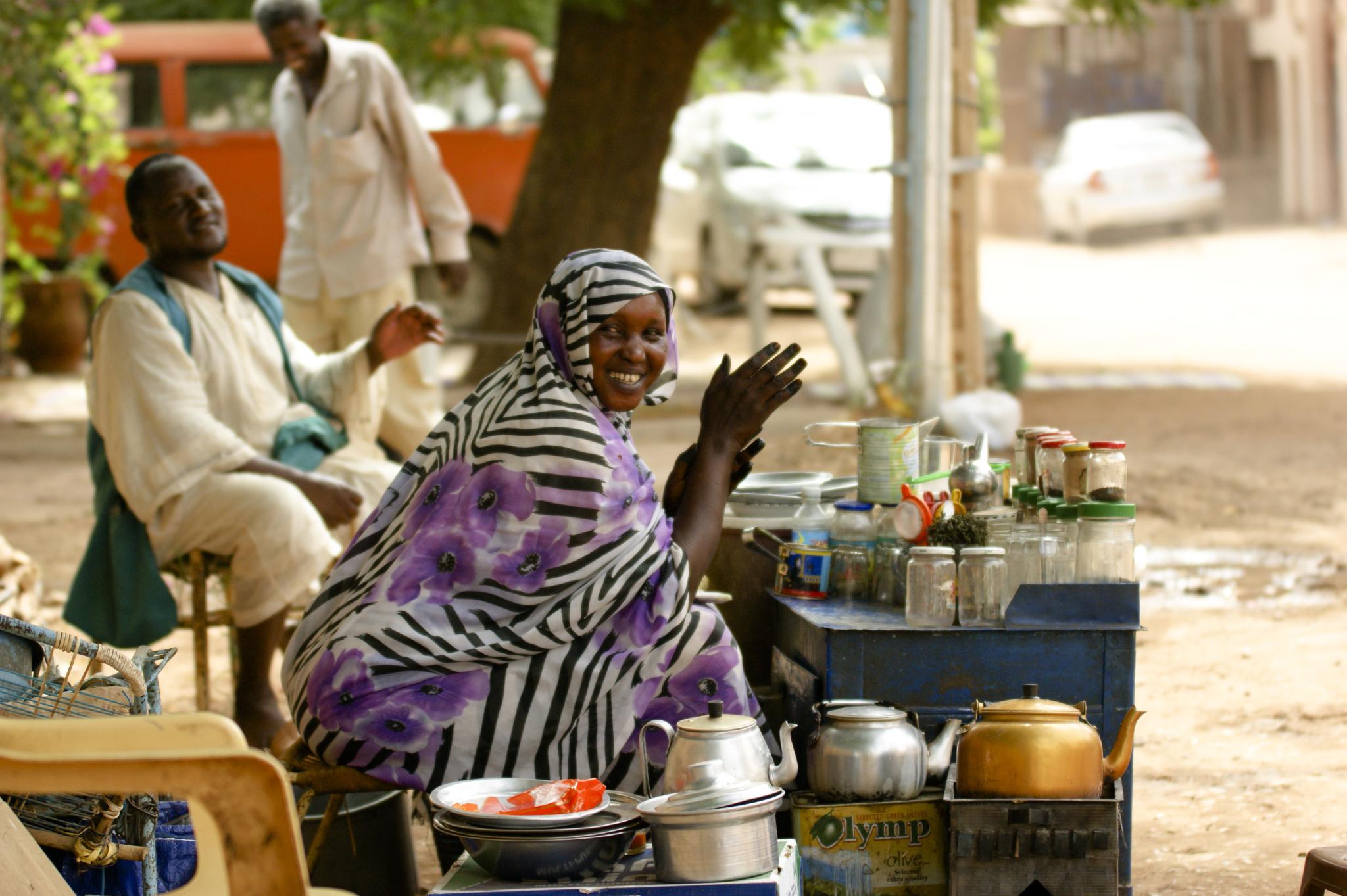
We love it even in its final ruin
By Al-Zain Osman
Fate responded to the call of the poet Mohamed Taha Al-Qadal (1951 - July 2012).
Al-Qadal witnessed the December revolution in Sudan and packed his bags, leaving ahead of the destruction, with his death anticipating the occurrence of ruin, surrounded by fears that one day he would witness it.
Al-Qadal died before the ruin engulfed Khartoum, the one who sang for peace, rejected war, beating, and plundering, when war destroyed cultivation and progeny in Darfur and South Kordofan.
We saw images of death and repeated the phrases We love this country even in its final ruin when floods demolished homes and carried the lives and belongings of people on its path. We repeated the same phrase when war ignited in Khartoum.
Its people left, and it remained mere barracks for soldiers and their weapons, and dwellings for cats. We found no other phrase to say except This country belongs to us in its hunger, and its broken imprint in the softness of the void belongs to us and We still love this country even if its in ruins.
When ruin reached Khartoum, the one that war inhabited, we found nothing to chant other than We love this country, and in our minds, all the countries are a silly imitation of one origin, which is Sudan.
In the midst of war, they ask you: Do you love it? The pulse responds, and I cut off the hand that reaches out to it with ill intentions. In Sudan, during their war, you can see millions of scenes enveloped in love by their owners.
One of them goes on TikTok to say, I love this Sudan so much. I am abroad, and I only think about what I can obtain here. I want to go back with it to complete my projects there, for there is no house that an lover dwells in except Sudan. He says that while struggling not to let a tear fall from his eye.
Amidst her tears, a displaced Sudanese woman forced to leave her country on a journey of displacement that she hopes will end says: Out of intense longing, we cried. And she continues: Leaving Sudan out of necessity made us realize how much we love it. It made us realize that life away from its noise and chaos is not life. And literally, we love this female, Omdurman, and we die of love in Khartoum. We love the Klakla. All countries are exiled far from the beloved Yusuf. And she concludes: The worst thing that can happen is to separate lovers.
A lady who left her place for a safer place away from the war of Khartoum says: We dont have any option other than loving the country and all its details. We love our homes and the entrance of our children upon us. We love the morning trips to the markets and the midday trips to visit neighbors and drink coffee. We love it in the evenings, and we still deeply love it even when we are at the height of our knowledge. The end of ruin is when it ends, and Sudan remains for its people and by its people.
A young man says: When we sang We love it even in its final ruin, we thought it was just an attempt to entertain ourselves and to continue in our love, before we discovered that it was real, and to the distant end.
What was the ruin that extended to the Arab market to make us forget the places there, and the details of life. They demolished the buildings in Bahri, but it is still the institution of meanings, and Bahri is still the secret of love. No war can succeed in making us hate Aziz Omdurman or East Nile, or any part of Sudan with its dispersed edges and deep roots of love. They will fail in all their attempts to make us hate it, and the same pulse will respond to them: We love the country more, even if its in ruins.
In Nyertiti, in a time other than time, when peace was the slogan of the revolution, people held their sit-in amidst rifles. The prolonged years of war failed to make them forget that this land is theirs.
They expressed their love with a large flag for Sudan, that day. They didnt write on it We love it even in its ruin, but everything confirmed this love for the homeland.
They ask you again: Why do you love it even in its ruin? Why do you love it in times of ruin? Answer their question with another question: Why did you turn its buildings into ruins? Why did you turn its peace into death?
And continue: I know that you dont have an answer. And I am confident that those who ignite a war, knowing its futile, and spread hatred among people, will not comprehend the meaning of love! They will not understand that this ruin will end, and love will remain.
But I will answer you: We love it in its ruin, hoping that it wont be its final matter. We love it in its current state because with love, both we and it will rise. The place that resembles us, we loved it since yesterday; when it wasnt in ruins!
We love it now, while carrying out the work of demolishing the ruin, to rebuild it from the beginning and anew! We love it now, fully confident that what they are doing to it will be its final ruin, and that tomorrow will come just as her beloved Sherif sang: A nation thats raised by virtue... will illuminate the streets of Khartoum. Did you understand why we love it even in its final ruin?

